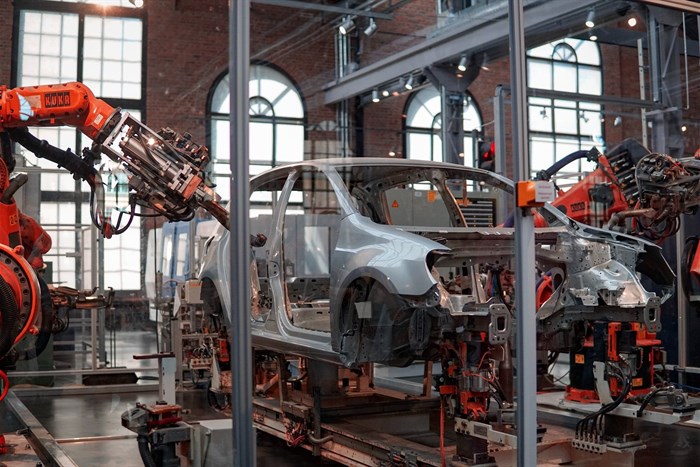South Africa's auto manufacturing industry is navigating significant challenges outside of its control. The future success of one of the country's standout industries depends on resolving those which can be resolved so the industry can work around those which are more problematic.
It’s true that globally the auto industry has been in a difficult space. Covid shuttered factories and stalled sales in many parts of the world, and microchip supply chain issues affected supply.
Worldwide, the motor industry is down over 10% when compared to pre-Covid levels. In South Africa, there have been specific problems like the 2021 riots and the 2022 KwaZulu-Natal floods, leading to lost production.
Those events are now being overshadowed by the country’s struggling economy, load shedding, geo-political issues and lack of government’s auto policy.'
Struggling economy
The economic outlook is not promising. GDP growth is expected to be at significantly lower levels in 2023 compared to 2022 and the rand has continued to weaken against major global currencies. Treasury projects growth slowing to 0.9% in 2023 because of electricity supply disruptions, tighter monetary conditions and slowing global growth.
Business confidence is also low and the recent greylisting by the Financial Action Task Force will further dampen investor sentiment towards SA. But it is load shedding which is at the heart of the economic slowdown. Estimations on the cost of the power crises are between R400bn and R600bn in 2022, depending on methods used to measure the crisis. Expectations are that 2023 will be worse.
A reliable supply of electricity and stable exchange and interest rates are crucial to the well-being of the auto industry, which contributes 4.9% to GDP. This contribution is made up of 2.9% manufacturing and 2% retail.
Geopolitics and economic well-being
Foreign policy in situations of global conflict creates challenges – potentially significant ones – if not aligned with economic interests, and South Africa’s ambiguous position on the Russian invasion of Ukraine is the “elephant in the room” right now. Despite assertions of “neutrality”, the West has been uneasy about SA’s engagement.
The situation becomes potentially more problematic for SA generally, and the auto industry specifically, as the European Commission confirmed that sanctions would be applied to “third countries that help the Russian Federation with goods”.
Recent media reports noted “more than $15bn worth of exports that sustain a critical part of South Africa’s manufacturing industry is on the line” and South African businesses are concerned over the country’s participation in the USA’s African Growth and Opportunity Act (Agoa), that grants duty-free terms to specific nations – and is seen as crucial for SA’s auto manufacturers and the industries surrounding them: “from ports to parts suppliers. More than four-fifths of the vehicles made for export in South Africa go to Europe or the US”.
Decarbonising South Africa’s roads
South Africa is at risk of being left in the parking bay as global auto manufacturers move steadily towards a decarbonised future.
The Automotive Business Council/Naamsa’s discussion document on new energy vehicles (Nevs) for South Africa, released in March, provides a comprehensive and long-term automotive industry transformation plan on Nevs for South Africa in line with the South African Automotive Masterplan (Saam) 2021-2035 timeline.
While the document said no “single government policy or industry commitment will achieve the ambitious goal of carbon neutrality by 2050”, and that a collaborative approach was needed, it made it clear that “comprehensive national industrial and energy policies that effectively promote the competitiveness of the automobile industry” were essential if carbon neutrality goals were to be met.
This view was endorsed by major media outlets soon after, with industry contributors warning that time was running out for SA’s auto manufacturing industry and the country needed to “align its automotive policy with the global shift to EVs as the stakes are extremely high”.
Naamsa CEO Mike Mabasa had previously stated that Nev plant decisions for the next general Nevs would take three to four years before production could begin and pointed out that, when looking at plants, manufacturers consider:
- Low logistics CO² footprint;
- Green and low-cost energy;
- Investment and infrastructure support;
- Competitiveness versus other international plants;
- And a suite of government support incentives to lower the cost of production and stimulate demand.
Taking the lead
The automotive industry is a key part of the local economy, and it is a Saam objective to produce 1% of the world’s vehicles (1.4 million vehicles a year) by 2035. The sector attracts foreign investment, with the original equipment manufacturers (OEMs) investing R8.8bn in 2021, in addition to the R5.7bn invested by the component sector.
The OEMs and their suppliers and dealers employ more than 110,000 people in the country, and Naamsa points out, with the industry’s strong multiplier effect, the industry accounts for more than 500,000 jobs.
These numbers underline the industry’s contribution to SA’s GDP, employment and inward investment, and the need to put it on a more predictable path to growth. The performance of the economy and confidence in it, load shedding, and foreign policy are all within the government’s domain to directly or indirectly manage.
Short-term strategies to mitigate power cuts are receiving attention, as is the long-term situation, although benefits are still some way off. But government can positively impact the situation by moving swiftly to release an Nev policy and to resolving policy misunderstandings around the Russia-Ukraine conflict.


































